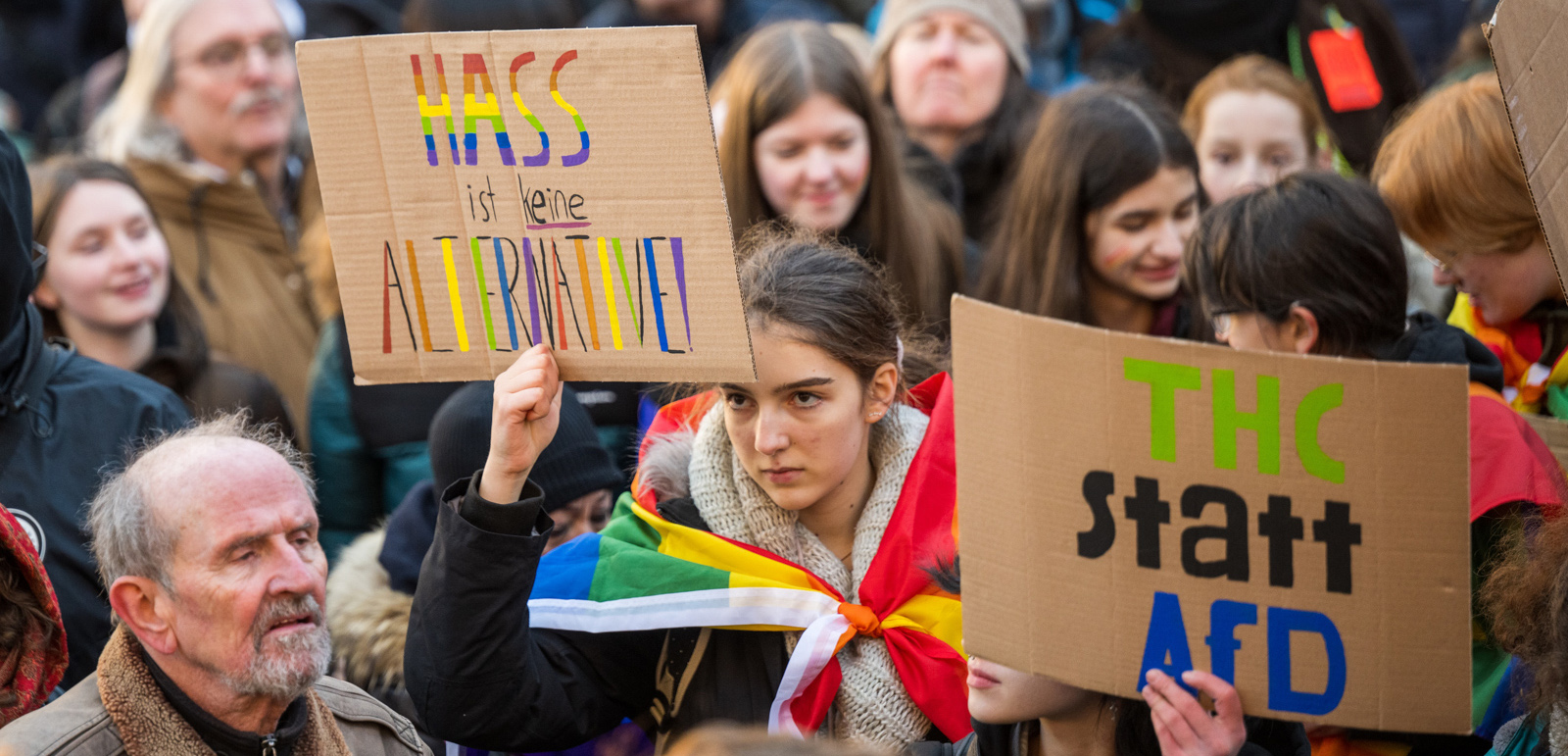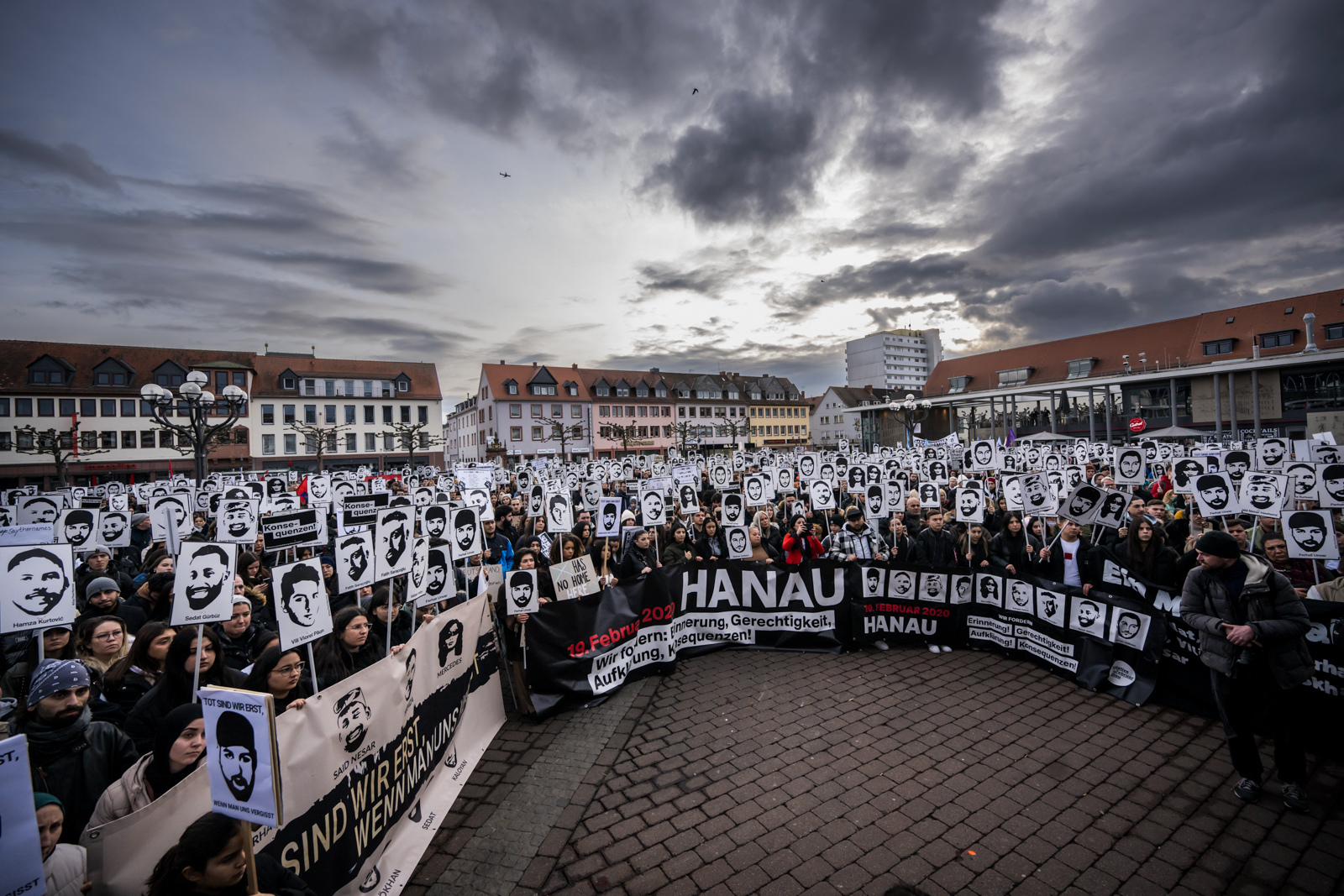German Muslims fear a swing to the far-right after Alternative für Deutschland’s electoral wins
The party, the second most popular in Germany according to opinion polls, has prospered since pivoting from a Eurosceptic to an anti-immigrant platform
–

Leaders of prominent Muslim groups across Germany have warned that the recent electoral wins of Alternative für Deutschland (AfD), a far-right, anti-immigrant party, pose a threat to Muslims and immigrants. As the popularity of the party grows nationally, the election of an AfD candidate to a post equivalent to a UK mayor in Sonneberg, in the central state of Thuringia, marks the first time the party has taken charge of a municipal district.
As a Muslim living in the state’s capital Erfurt, Suleman Malik was not surprised by the Sonneberg vote. “I wasn’t shocked that the AfD candidate was elected, but it’s a very concerning issue for the wellbeing of our society,” the 35-year-old said.
Malik, who arrived in Germany from Pakistan as a teenager and works in HR, does not consider AfD voters “facists or Nazis” but believes the party’s rising popularity reflects a deep-rooted fear of change in German society.
“Germany has taken far more refugees than any other European country in recent times and the result is that many local people are afraid that their societies are changing beyond comprehension,” he said.
The AfD is now polling as the second most popular party in Germany with 22%, up from 11% last year. It has elected members in state and federal parliaments, but mainstream German political parties have agreed a “firewall” prohibiting cooperation with the AfD, preventing it from having policy-making power. This summer, however, it made significant gains regionally. In early July, it enjoyed another municipal win in the eastern state of Saxony-Anhalt.
The party’s dramatic growth began with its pivot from a Eurosceptic to an anti-immigrant platform during the refugee crisis of 2015, when a surge of people fleeing wars in Syria, Iraq and Afghanistan arrived in the EU seeking asylum. Germany under then-chancellor Angela Merkel welcomed 1.2 million refugees with an open border policy, prompting outcry from some sections of German society. The anti-Islam group Pegida held rallies drawing thousands, nearly 10 attacks a day on migrants were reported in 2016, and in 2017 attacks on mosques soared to 73.
The AfD leadership responded by maligning Muslims in particular, with co-founder Alexander Gauland telling The Atlantic magazine in 2017 that the party’s success was partly because “we don’t like Islamic invasion”, despite the fact that nearly three million Muslims in Germany are citizens.
A report commissioned by the Federal Interior Ministry after a far-right gunman killed nine people at shisha bars in the city of Hanau in 2020, released this June, found “about every second person in Germany agrees with anti-Muslim statements”. It also found that that the AfD has “a manifestly anti-Muslim program”.

For Aiman Mazyek, general-secretary of the Central Council of Muslims in Germany, the party’s gains in the national polls are especially concerning. He worries that its “open racism” and “anti-Muslim stance” may inflame existing prejudices, create further division and increase the likelihood of racially motivated attacks.
“The consequences are felt especially by those who have to fear for their safety due to everyday racism and attacks,” he said.
Mahmoud Tahawi, chairperson of the Berlin-based Muslim youth group Juma, believes that the AfD’s conflation of Muslims with immigrants or people of colour underscores a broader “othering” of minority groups in Germany.
“That’s the arrogant thing about racist people — they don’t really care who you are or what you are,” he said. “You only need to have black hair and black eyes to be recognised as Muslim and experience this type of discrimination.”
Malik, a spokesperson for the Muslim Ahmadiyya community in Germany, has experienced this hostility first-hand over the past decade in his role helping to get a new mosque built in Erfurt.
In 2016, AfD state leader Björn Höcke cast the project as part of a “long-term land grab” by Muslims. Höcke organised rallies against the mosque, inviting members of Pegida to participate.
During construction, the mosque was pelted with pork and had metre-high crosses erected on it. Malik received death threats on social media and still receives threatening phone calls — an experience he describes as “obviously worrying and terrifying”.
This local resistance to the mosque has slowed the project to a glacial pace. In trying to build a minaret, Malik said companies refused to work with him. When he finally hired a contractor through a friend, they asked him not to publicise his work on the project. Now, finally, the mosque is nearly finished.
“Honestly, if I didn’t have a mosque here and I didn’t have my family here, I would quickly leave this area,” he said.
Like much of the formerly communist East Germany, Thuringia has wages lower than the national average. “People are very much suffering under the crises,” said Thuringia’s interior minister, Georg Maier, of the centre-left SPD party, referring to a rising cost of living and soaring energy prices.
Maier attributed a large part of the AfD’s appeal to its populist promise of a return to a simpler time. He is, nonetheless, very concerned about the effect of a strengthened AfD on the lives of minorities: “For people of colour, the political climate, the climate of the society is not really friendly.”
Maier does not group Robert Sesselmann, who won the June election in Sonneberg, with the party’s most extreme elements, describing him as a “reasonable politician”. He is, however, very critical of Höcke, the party’s leader in Thuringia. “In my opinion, he is definitely a right-wing extremist,” said Maier.
This is also the opinion of the head of the domestic intelligence agency, Thomas Haldenwang, who told the DPA news agency in December that he is concerned “right-wing extremists like Björn Höcke have had a strong influence on the party”.
AfD party chairman Tino Chrupalla has previously rejected claims that it is an extremist party. The party did not respond to a request for comment for this article.
As the AfD becomes more significant in mainstream politics, Malik likens what his community is facing now to what his father experienced 30 years ago, when he guarded against skinheads who attacked foreigners. Recently his father told him something that alarmed him — back then, it was easy to identify those who might threaten you, today “it’s very deep in society”.
Topics
Get the Hyphen weekly
Subscribe to Hyphen’s weekly round-up for insightful reportage, commentary and the latest arts and lifestyle coverage, from across the UK and Europe
This form may not be visible due to adblockers, or JavaScript not being enabled.